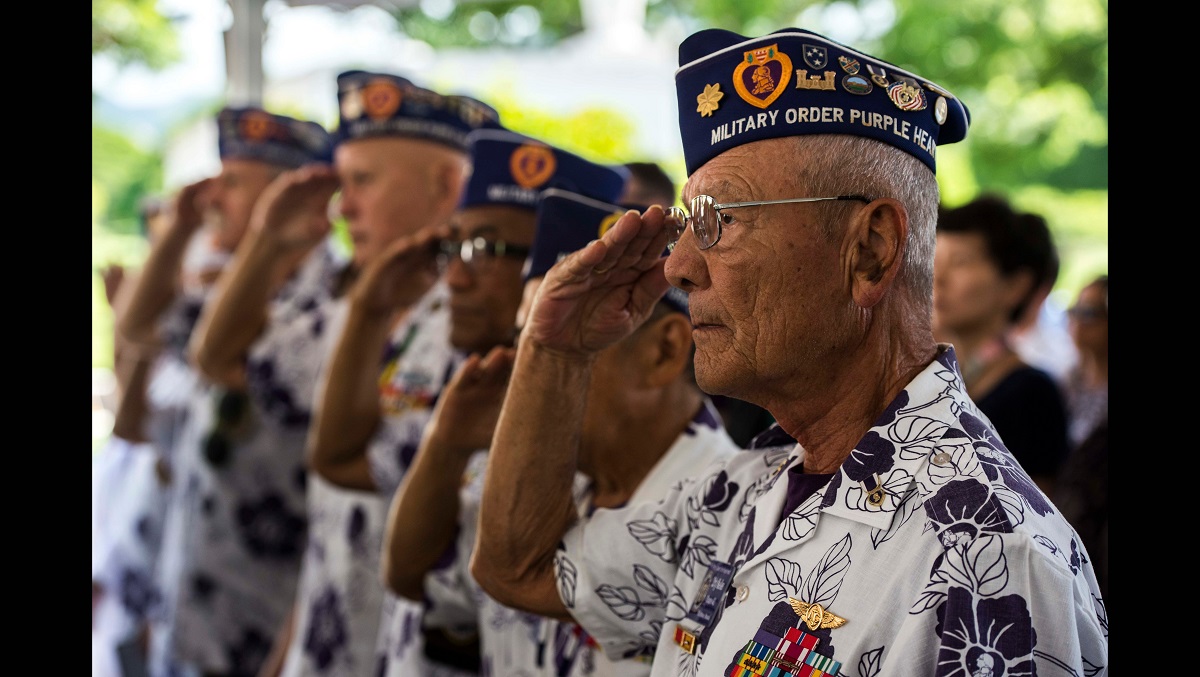
When we assumed the Soldier, we did not lay aside the citizen.
– George Washington, letter to Peter Van Brugh Livingston, 1775
If you are a military retiree, you may not know that your freedom of speech rights continue to be restricted after you have honorably retired from the military. These Constitutional rights are restricted and if you violate Article 88 of the Uniform Code of Military Justice (UCMJ) you may be called back onto active service and court martialed. Under our current laws this restriction of your freedom and the threat of court martial is permanent for you until the day you die. This is wrong. Restricting freedom of speech of military retirees is unconstitutional and helps stifle the civic interaction of veterans in our political system.
How Did We Get Here
I first became aware of Article 88 and its potential impact on military retirees shortly before I retired. I was having a discussion that touched on politics with a friend and retired military officer in 2019. My friend pointed out that under Article 88 of the UCMJ a retiree could be brought back onto active service and court martialed for exercising their first amendment freedom of speech rights. My friend’s comment caught my attention, and I began to do some research. What I found confirmed my friend’s assertion was correct. Under current law, if a retiree is deemed to have used contemptuous words (p. IV-21) against a sitting president of the United States, president of the Senate, speaker of the House of Representatives, state governor, or other political leader, they could receive up to a year of confinement and the forfeiture of all pay and allowances. As the events unfolded during the tumultuous year of 2020, Article 88 and its application to military retirees would again be seen as an issue. A number of retired flag officers made public statements about former President Trump that caused public discussion on Article 88 of the UCMJ, contemptuous words and the prospect of receiving punishment for exercising your freedom of speech after you have retired from the military.
Air Force Captains Pavan Krishnamurthy and Javier Perez in the Harvard National Security Journal, provide an exceptional perspective on this very important issue; they argue the application of Article 88 to retirees adversely effects the rights of these American citizens, and therefore that the Supreme Court should exempt retirees from this restriction. Military retirees became subject to the UCMJ when it was enacted in 1951, a move that caused some initial controversy, but otherwise has been seldom tested in the courts. Thus far, judges have deferred to the military, allowing it great latitude to deal with its own personnel. The all-volunteer force is 50 years old and based on the relative youth of this policy the ramifications of restricting retirees’ freedom of speech have yet to receive a significant challenge in the courts, generate public debate, or to be considered by junior leaders weighing the benefits and risks of making a career out of the military.
Second Class Citizens?
The First Amendment of the United States Constitution states that “Congress shall make no law respecting an establishment of religion or prohibiting the free exercise thereof; or abridging the freedom of speech, or of the press; or the right of the people peaceably to assemble, and to petition the Government for a redress of grievances.” However, Article 88 of the UCMJ does just that to military retirees. As uniformed members of the Department of Defense we understandably gave up this right to serve in stressful and demanding environments where the requirement to maintain good order and discipline was essential to mission accomplishment and survival. These requirements as a retiree are no longer valid. As George Washington stated in his reply to the New York Assembly, soldiers look forward to the “happy hour when the establishment of American liberty, on the most firm and solid foundations, shall enable us to return to our private stations in the bosom of a free, peaceful and happy country.” Would our predecessors who fought for our nation’s independence agree with the concept of fighting for a nation, and then once this obligation is complete settle into a life of a second-class citizen where you have less freedom than a fellow citizen who never served their republic? Certainly, holding retirees to a standard of second-class citizenship violates our Constitution and fails the test of common sense.
Article 88 poses another problem. With the potential disparity and subjectivity in defining contemptuous speech how could this article be enforced against any military retiree? While Article 88 does offer a three-part test to determine if it should be invoked, it is subjective in what constitutes offensive language or what could discourage military subordination to civilian leadership. This level of subjectivity further chills the speech of military retirees.
There are other constitutional problems. Retirees from the National Guard and Reserve components do not have their first amendment rights taken from them while military retirees who served on active duty do and live under the threat of court martial for violating Article 88 of the UCMJ. This has been legally challenged as a violation of the equal protection clause of the Constitution, but this argument has thus far been rejected by the courts. Nevertheless, this unequal application of the law between military retirees serves to widen the divisions in our force and serves as another reason to abolish this unwieldy application of the UCMJ.
The application of Article 88 is that it may violate some of the most basic tenets of contract law. For a contract to be valid an offer must be made: “An offer refers to the statement of terms and conditions to which the offeror is willing to be bound. It expresses the willingness to abide by certain terms that will become binding as soon as the offer is accepted by the offeree.”In very few instances is this made clear to retirees—that they will have reduced freedom of speech rights for the remainder of their life if they decide to serve until retirement. Therefore, binding retirees to this standard is unlawful.
On the other hand
I have heard two defenses for withholding the freedom of speech rights from military retirees. The first of these is the very act of receiving retirement pay and other retirement benefits comes as part of the stipulation that you may be called upon at any time to re-enter service to our nation. Captains Krishnamurthy and Perez refute this claim by stating that the robust forces of the National Guard and the Reserve components ameliorate the need to recall retired officers. Currently, withholding freedom of speech rights is a lifetime revocation and the recall to active service becomes less likely as a retiree ages, and their knowledge, skills and ability diminish. Certainly, arguing that receiving retirement benefits causes a lifetime of second-class citizenship is rebuffed by these counterarguments.
The second, and potentially stronger, argument is that allowing retirees to speak may indirectly undermine good order and discipline from within the military. Krishnamurthy and Perez explained why this justification for withholding constitutional rights is flawed. They point out that a soldier who serves for 19 years and does not retire from the military is not subject to court martial for disparaging an elected official, but a soldier who retires after 20 years and retires is. In the eyes of an American citizen and of a serving soldier, it may not be easy to distinguish the difference. In addition, as previously mentioned, National Guard and Reserve retirees are not held to this standard and are free to exercise their free speech however contemptuous their language may be. Based on this wide ranging and unequal treatment of active force retirees and those that have long periods of service the argument for maintaining good order and discipline has little to no merit.
Consequences for our Nation
Restricting the freedom of speech for American military retirees is producing undesirable second- and third-order effects. It chills the speech of a very educated class of American citizens with keen insight into leadership and foreign policy. This is counter intuitive. We need to hear these citizens’ voices to have a more robust conversation which may help us elect better leaders and to have a more effective foreign policy. Additionally, restricting the freedom of speech of our military retirees may hinder military members’ pursuit of full careers once they realize it includes limitations of their Constitutional freedoms for the rest of their lives.
Finally, the lack of veterans serving in Congress is concerning. Could it be that the potential of being court martialed for uttering contemptuous words may make military retirees less inclined to enter another national political service to our nation? For instance, while running for office or in the halls of Congress a military retiree could feasibly be held liable for uttering contemptuous words against a political opponent, but their political opponents, who may have never served in the armed forces, do not face the same restrictions of their first amendment rights and the threat of legal action. This is unwise and could well be preventing educated and experienced leaders from serving in positions that could benefit our nation. Restricting the Constitutional rights of military retirees is wrong. It is shortsighted, and in the long term it will prevent our most experienced retirees from engaging in their civic responsibilities and it will prevent our best and brightest from joining the military and making a career of it.
George R. K. Acree is a retired U.S. Army colonel and is currently an Assistant Professor at the U.S. Army Command and General Staff College, Fort Leavenworth, Kansas. He earned a bachelor’s degree from Lincoln University (Cum Laude), and he has earned two master’s degrees, one from Webster University and the second from the Army War College. COL Acree also earned a graduate certificate from the Naval Post Graduate School. He served in the U.S. Army for over thirty-three years, where he spent eight years in the enlisted ranks and then spent the remainder of his service in the officer ranks. His service spanned both combat arms and combat service support and he served in the Active Service, the Reserves and in the National Guard. COL Acree successfully served in various assignments in the United States, Germany, South Korea, and Iraq.
The views expressed in this article are those of the author and do not necessarily reflect those of the Command and General Staff College, the U.S. Army War College, the U.S. Army, or the Department of Defense.
Photo Description: Members from a local Veterans of Foreign Wars (VFW) chapter render a salute during a ceremony for National POW/MIA Recognition Day at the National Memorial Cemetery of the Pacific, Honolulu, Hawaii, Sept. 21, 2018. National POW/MIA Recognition Day, first established in 1979 through a proclamation from President Jimmy Carter, is an observance to honor and recognize the sacrifices of those Americans who have been prisoners of war and to remind the Nation of those who are still missing in action. DPAA is conducting worldwide operations to provide the fullest possible accounting for those classified as still missing.
Photo Credit: U.S. Air Force photo by Staff Sgt. Leah Ferrante





Has anyone, anywhere, ever been charged? For the last 30 years retired Flag Officers have engaged in public discourse that is filled with contempt. Many should have been charged and were not. Active duty officers have engaged in similar behavior and were not charged.
George,
Thanks for the thought-provoking piece. My father (Retired Navy officer) shared the same information with me at my retirement. I too was taken aback and had never been informed of the issue at any point in my service.
I take a view contrary to yours, however. I would actually argue that uniform application equally across all three components, and a more active application of the rules (or at least warnings from DoD to retired officers when they risk/have actually crossed the line) would have a number of potentially positive impacts on the profession and society. The damage done to the profession and the public’s trust by highly un-professional retired partisan officers of all stripes over the last 7+ years is reason enough to reconsider and act.
One can be politically active without being an unprofessional partisan hack. My dad’s advice to me was to focus on thoughtful, professional policy and action critiques, and not cheap ad-hominem attacks. Doing so, he said, would keep you out of trouble in front of an IG/prosecutor/jury of your peers in the highly unlikely event an investigation was ever pursued. Providing candid, critically evaluated policy and performance evaluations and options/corrective actions is after all a big part of what we get paid to do – it’d be hard to prosecute one for doing that.
After 30 years of service and observation of the system, I think he’s absolutely correct. We debase ourselves and the profession when we engage in the same worthless, mindless, destructive, partisan mudslinging as much of the general population and too many in the political class. If you are engaging in thoughtful, professional engagement in the political/policy discussion, I believe you have little to nothing to fear in a normal environment.
Is there a risk that some future President or SECDEF with no respect for constitutional norms or law, historical precedent, or worse, dictatorial ambitions and a subservient DOG and legal system, could change department policy and begin mass, selective prosecution of those in the retired community for what party they belong to or for words they have said?
Yes, there is. But frankly, we’ll probably have more important things to worry about at that point!
That said, I choose to trust in our officer corps, our people, our public, and our courts to do the right thing and defend us when push comes to shove.
Thanks again for an engaging piece.
Respectfully, Dan
Dan,
Your father gave wise advice and the author writes an excellent article.
“One can be politically active without being an unprofessional partisan hack. Providing candid, critically evaluated policy and performance evaluations and options/corrective actions is after all a big part of what we get paid to do ”
The problem of course is an unbalanced application of the law by partisan actors. For instance, the use of terminology changes, regardless of the officers use of it. Over time, calling a government a “regime” has taken on a negative connotation and can easily be the basis for going after a political opponent. How quickly will pointing out gross policy failures in the Sahel over calling Ukraine a proxy war (a matter of opinion) make one a target?
The ludicrous abuse of the English language now underway with pronouns and so on should serve as a cautionary tale when it come to speech.
Censoring speech is NEVER a good idea, particularly for folks who devoted their lives to ensuring everyone’s natural right is protected.
Glad I’m not a military officer but, a senior NCO E9. I see no purpose in not allowing a retired officer attend a protest. Yes, of course never in uniform. At the veterans protest against Trump there were plenty of retired Officers in the crowd.
I feel there’s a necessary distinction that needs to be added – between retirement and resignation. I agree with you that retirement should not affect my rights to free speech; but my commission should and does. If at some point in my next career I feel compelled to political speech that could be deemed contemptuous then I should do so as a private citizen instead of as a retired officer who enjoys the respect and privileges of that rank.
Article 88 only applies to commissioned officers. It seems like resignation should shield someone from recall and prosecution under it; but I am not a JAG.
My problem with the politicized officers spewing contempt in the news is not what that they say – it’s that they let the news anchors and the captions call them “General” and nod and accept that honor while their words and deeds are dishonoring it.
Thanks to Douglas, Dan, and Rob for their thoughtful interaction with the article and other comments. It’s great to see this conversation!
Could a possible context — within which questions such as these may have become manifest — could this such possible context prove helpful here? Example:
“The current conflict is one of several possible wars of the market-states as they seek to open up societies to trade in commerce, ideas, and immigration which excite hostility in those groups that want to use law to enforce religious or ethnic orthodoxy.” (See the Global Guerrillas Sunday, 27 November 2005, Journal item entitled “Market-state vs. Virtual State.”)
Thus:
If the Trump, AQ, etc., movements have become manifest; these, in various societies’ efforts to (a) prevent the opening up of societies (to include our own) more to trade in commerce, ideas and immigration and, thus, to (b) continue to enforce religious and/or ethnic orthodoxy,
Then how might this such context/this such conflict environment (which the world may not have seen for the last 100 years or so; this, due to such things as WW1, WW2 and the Cold War?) — how could this effect such things as the questions and suggestions addressed (a) in our article above and (b) in the comments thereto?
As to my thought here, let us consider, for example, this portion of COL Dan Pinnell, USA Retired, his March 29, 2024 at 11:04 am comment above:
“After 30 years of service and observation of the system, I think he’s absolutely correct. We debase ourselves and the profession when we engage in the same worthless, mindless, destructive, partisan mudslinging as much of the general population and too many in the political class. If you are engaging in thoughtful, professional engagement in the political/policy discussion, I believe you have little to nothing to fear in a normal environment.”
As to COL Pinnell’s thought here, note that — as per the information that I provide in my initial comment above — we may not be, today, in what one might call “a normal environment????”
My thoughts above possibly stated in another way:
If retired commissioned officers are participating in thoughtful, professional discussions relating to important, critical policy matters today — such as whether national security can best be achieved and maintained today by (a) working to open up of states and societies (to include our own) more to trade in commerce, ideas and immigration or by (b) abandoning these such initiatives and working, instead, to maintain religious and/or ethnic orthodoxy (may require the use of the military, in some capacity, both here at home and there abroad; this, to each either of these such objectives?) —
Then — in these such contexts (which we may not have seen in the last century or so; this, due to such things as WWI, WWII and the Cold War?) — do we believe that Article 88 of the UCMJ (a) still serves an important purpose, (b) still may be of some kind of important use — or, in sharp contrast — (c) is proving to be something of an impediment and, accordingly, (d) may be something that we may need to reconsider? (Etc., etc., etc.)
Let me take, possibly, a different tack. In this regard, consider our thoughts and questions relating to Article 88 of the UCMJ from the following perspective:
“Wright’s article was prompted by a brief observation in the magazine Foreign Policy by the military writer and journalist, Thomas Ricks, who considered ‘another civil war breaking out in this country over the next ten to fifteen years’ a real possibility.’ By “civil war’‘ Ricks wrote, ‘I don’t necessarily mean set-piece battles and Pickett’s Charge. I do mean wide-spread political violence with parallel (though not necessarily connected) efforts to reject current political authority in certain legal domains or physical spaces.’
This post was sharply attacked as ‘irresponsible’ and ‘nonsense’ by one critic, Josh Barro who, in an article for the Business Insider website, observed:
‘By this definition, America experienced a civil war from the late 1950s to the early 1970s, when race riots engulfed major American cities, four major political figures were assassinated, and the federal government had to send National Guard troops into Southern states to enforce integration over the objections of both local officials and violent white mobs. According to the FBI, there were 2,500 bombings in the US in 1971 and 1972 alone, often carried out by left-wing groups like the Weather Underground. I agree there is a real risk that the US will return to 1950s–70s levels of political violence and social upheaval. And I’m worried about this. But calling such a situation a ‘civil war’ just makes everybody dumber.’
I’m not so sure. If, as Foner concludes, there is a reassuring difference between 1860 and 2017, there are also disquieting differences between the 1960s, the 1970s and the present, and these differences are both constitutional and strategic. Constitutionally, we are more divided as a state today than at any time since the 1860s. Strategically, the increasing lethality of weapons, coupled with the ability to organise mass movements through social media, and the decentralisation of both phenomena, are very worrisome. Moreover, in one crucial respect, the US today is not so different from the 1860s: that would be the paralysis of Congress and a lack of confidence in the two major parties, our Whigs (the establishment Republicans) and our Democrats (then divided regionally, now ethnically and racially).”
(See near the end of the the September 28, 2022 “Engelsberg Ideas” article “The decay and Renewal of the American Constitutional Order” by Philip Bobbitt.)
Question:
Specifically from the perspective offered by Philip Bobbitt in his final quoted paragraph above (in this regard, see such things as “Constitutionally, we are more divided as a state today than at any time since the 1860s. Strategically, the increasing lethality of weapons, coupled with the ability to organise mass movements through social media, and the decentralisation of both phenomena, are very worrisome. Moreover, in one crucial respect, the US today is not so different from the 1860s, that would be the paralysis of Congress and a lack of confidence in the two major parties, … “); specifically from this such perspective, what should take precedence:
a. A military retirees first amendment rights? Or
b. Article 88, UCMJ?
Note that the — decidedly different/the decidedly non-normal– state of affairs, described by Philip Bobbitt in my comment immediately above; note that this such significantly different/this such significantly non-normal state of affairs, this, indeed, may cause some serious problems for COL Dan Pinnell’s (USA Retired) suggestion (see the last sentence of the fourth paragraph of his comment above) that “… you have little to nothing to fear in a normal environment.” ???
One additional perspective:
If, in the last thirty years or so, there was — at least for a significantly long time — (a) a general decline in the American peoples’ trust and confidence in its non-military institutions and officials, (b) a (corresponding and comparative?) general increase in the American people’s trust and confidence in U.S. military institution and its officials and (c) a (again corresponding and understandable?) increase in U.S. politicians “warming up to” and appointing military officials/former military officials to non-military governmental jobs [these such politicians seeking to, thereby, adjust to and politically capitalize on the phenomenon described at my items (a) and (b) above?],
Then, from that such perspective, how might this have effected/how might this effect such things as recent/current considerations for prosecution of various retired military officers under Article 88 of the UCMJ?
This generation is not the first to experience this phenomenon. Military members of the Vietnam era experienced this situation. As long as one is receiving military retired pay one is subject to the laws authorizing the payments. Military retired pay is actually considered a “retainer” pay where certain categories of “retirees” are subject to recall in times of national emergency. “Retired” pay is part of a non-contributory pension plan and is provided after a qualified recipient applies to receive their retired pay. Therefore, rules of behavior and decorum exist for those qualified to “retire”. See DoD Financial Management Regulation 7000.14-R. A military person has the option of resigning and not applying for or giving up their career earned “retired/retainer” pay and revert to civilian status. This is what some Vietnam era veterans chose to do during and after the Vietnam conflict era in order to be free from any perceived restrictions.
correct as I understand
I agree with Julue Manta. it isn’t the potential recall to active duty, a retired officer is still on duty in a retired status. Retired pay, but a pension or investment it is pay in the c retired status. I think many retired officers would want to speak from their experience and status. relieving them of responsibility under the UCMJ is wanting it both ways and would also undermine that status. We have to find a way to be political without being disrespectful. It isn’t “choosing to serve until retirement”, it is choosing to continue to serve as retired. you don’t have to retire and collect the benefits of “retired service”. two different things. if one doesn’t want to be held to that “standard”, don’t retire, resign.
This article is complete nonsense. Its author has no clue about the policies and precedent governing these situations.
You have freedom of speech as a retiree. You can make contemptuous statements toward elected officials. Just don’t say anything egregious like advocating the overthrow of the government or call for harm to elected officials